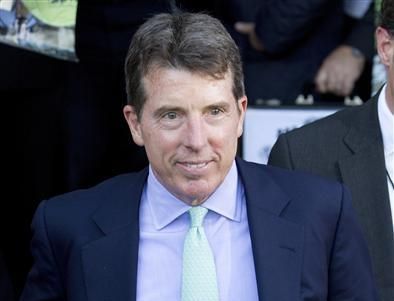Bob Diamond leaves a remarkable legacy. Over 16 years at Barclays, he built a premier investment banking franchise. One of his regrets will be that it wasn’t able to reach its potential as a full-service global operation while he was there.
The financial crisis of 2008–09, economic recession and the European sovereign debt crisis conspired to undermine activity and business volumes, which in turn forced the investment banking industry into a fierce down-cycle that has yet to turn positive.
Barclays’ acquisition of Lehman Brothers’ US operations was the culmination of Diamond’s efforts to create an institution that could compete with the Wall Street titans. Having completed the integration process and added reams of top talent from outside, the new Barclays Corporate and Investment Bank had been lying in wait for an upturn in confidence and the business cycle to flex its new-found strength. But that has so far failed to materialise.
Ironically, market conditions today bear some similarities to the period in which Diamond joined the then Barclays de Zoete Wedd in 1996. The market had experienced significant volatility and turmoil in 1994 and 1995, and was waiting for better times. Diamond was additionally given the significant – some at the time said impossible – challenge of building an investment bank that in many ways would be unique as a debt-only player.
By the mid-1990s, Barclays had decided to exit investment banking and dismantle its BZW franchise, which had been built at great expense in the decade after the UK Big Bang of 1986 tore down barriers to entry to London’s global financial centre through widespread deregulation.
It is worth remembering that the consolidation process initiated by Big Bang was still continuing. During the decade leading up to 2000, the big UK investment banks had all disappeared from the scene as independent players.
“I was at Barcap for almost 18 years, and the transformation of the firm under Bob’s leadership was extraordinary”
So Diamond began his challenge at a time of major change in the UK, but with just a debt business with which to ply his trade. What remained at BZW after the sale didn’t amount to much more than a decent UK government bond franchise, some FX, the parent bank’s treasury operations and a capital markets business that only served SSA clients and banks. In that respect, its client franchise was essentially a counterparty franchise.
Hiring and building
Diamond set about doing what he does best: hiring and building. What gave him confidence was the belief that the creation of the euro would propel European capital markets and create a rival to the US in terms of issuer and investor participation. The growth of euro capital markets proves that he was largely correct in his assumptions.
Diamond took the renamed Barclays Capital franchise and turned it into one of the fastest-growing investment banks in the world in terms of revenue, profit and market share. He hugely expanded the platform, hiring thousands of new heads and adding new businesses across government bond and credit trading, FX, structured products, equity derivatives, risk management solutions, distribution, research and capital markets.
The bill for that was significant, but as the years rolled on, so were the profits. In the years after Diamond started his quest, compound growth in revenue and profits was in the order of 20%–25% and Barclays Capital became the group’s single biggest division, responsible for around a third of all profits.
Sean Taor, now head of European DCM at RBC Capital Markets, speaks for many past and present Barclays employees when he recalls the impact Diamond had on the firm and the industry. “I was at Barcap for almost 18 years, and the transformation of the firm under Bob’s leadership was extraordinary,” he said last week.
“Bob Diamond changed the work ethic, upgraded standards, removed non-performers, and invested in talent. His enthusiasm and drive, together with his belief that the firm could compete in a global market, inspired a rare loyalty.
“I would hope people remember what he achieved over that time.”
